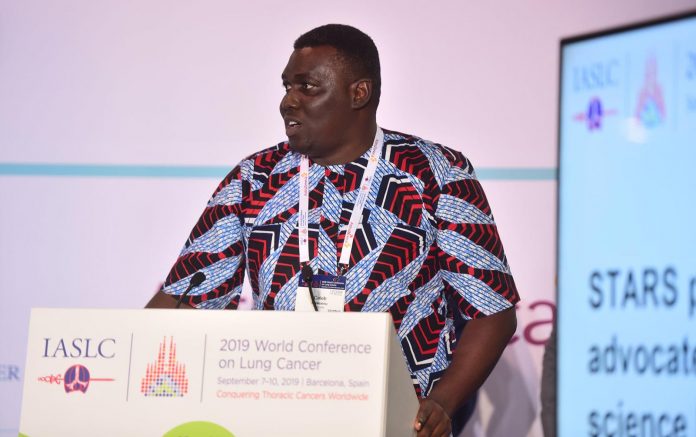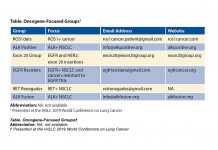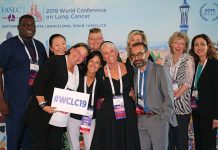
By Adam Mohrbacher
Posted: December 11, 2019
With the rise of organized lung cancer patient advocacy groups,1 patients, advocates, and caregivers are now playing a larger role than ever in raising awareness, providing education, and even driving research into the disease.
In order to support this groundswell of passion and advocacy, the IASLC’s Supportive Training for Advocates in Research and Science (STARS) program was designed and launched in early 2019. The program’s aim is to increase the number of patient research advocates (PRAs) equipped to provide accurate scientific translation in their respective patient and caregiver groups, and to become champions of the patient perspective for lung cancer research and policy.
The inaugural STARS program, which lasted 6 months, paired five PRAs and five Mentors with the goal of learning how to effectively interpret research articles, communicate their knowledge and importance to various audiences, and present on a scientific focus topic to their STARS cohort. STARS PRAs and Mentors attended the IASLC 2019 World Conference on Lung Cancer and gained a greater capacity to drive desperately needed change for the lung cancer community.
“This program brings together strong advocates with a passion for research and equips them to take their advocacy passion to a higher level,” said Dusty Joy Donaldson, a lung cancer survivor and advocate, executive director of the Dusty Joy Foundation, and 2019 STARS mentor. “The educational presentations, exchange of knowledge, and powerful shared experiences help us become more effective, empowered lung cancer research advocates.”
Patient advocate and PRA Kim MacIntosh agreed with that sentiment, commenting: “The STARS program has been a truly amazing opportunity for me in my lung cancer journey. Being a member of the program has given me incredible knowledge about the research and scientific world of lung cancer. The program is an incredible marriage of both the scientific world and the patient advocacy world.”
For many in the program, STARS not only provided tangible tools and strategies for improving their research advocacy work and increasing its impact; it also offered a greater sense of connection to the global lung cancer community and an opportunity to gain new ideas and inspiration.
“[It was a] unique opportunity to be a part of such a well-organized, informative, and supportive training program,” said advocate, patient, and STARS mentor Lillian Leigh, who lives and works in Australia. “I especially enjoyed connecting and learning from patient research advocates of other countries, who really inspired me to do more in my own.”
Finally, the STARS program is designed to have a resonance beyond its official 6-month duration, offering its participants opportunities for further learning and comradery that can knit advocates, patients, and health care workers into a united front in the fight against lung cancer.
“Everyone in the program grows—mentors and PRAs—and each team learns from the other teams,” said Ms. Donaldson. “STARS also has created a network of resources for alumni, including engaged medical professionals committed to fostering STARS participants.”
The IASLC expects to grow the STARS program in the future, eventually creating a network of STARS graduates that is ready, willing, and able to engage in meaningful research advocacy opportunities throughout the world. The association understands that for patients, advocates, and caregivers—those most intimately affected by the scourge of lung cancer—their advocacy work is a lifelong endeavor. And in this age of patient activism, which is helping to change the face of lung cancer and the possibilities of research, the IASLC is committed to serving as a reliable and supportive partner.
Reference:
1. Camidge DR. Motivated, Engaged, and Organized: The New Molecular Cohorts of Lung Cancer. IASLC Lung Cancer News. lungcancernews.org/2018/06/05/motivated-engaged-and-organized-the-new-molecular-cohorts-of-lung-cancer. Published June 2018. Accessed November 13, 2019.
Related Article:
STARS Patient Research Advocate Training Program Seeks Patients and Caregivers










